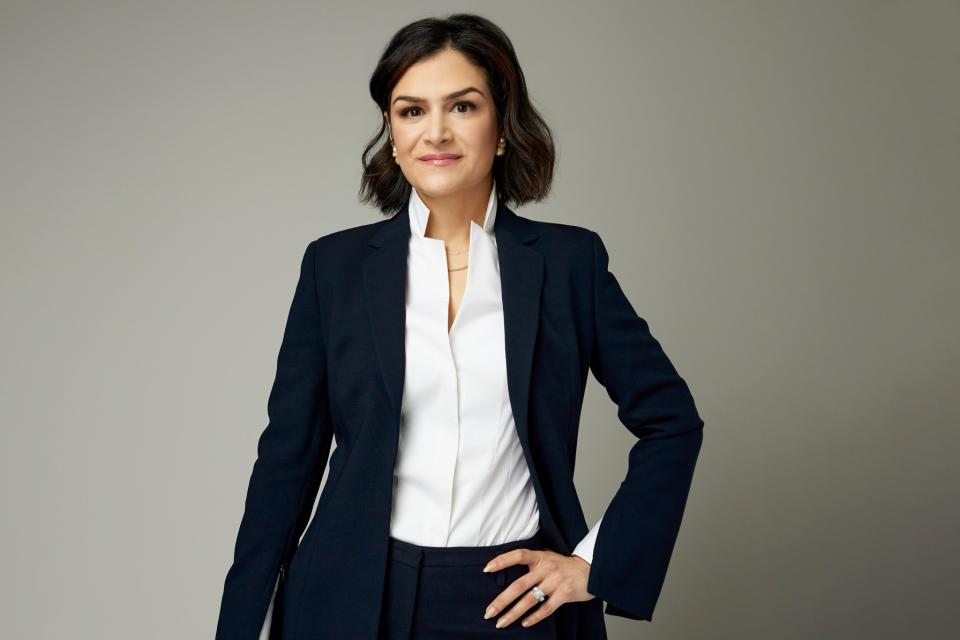CEO Sima Sistani didn’t think running WeightWatchers would be this hard

Good morning, Broadsheet readers! OpenAI appoints Sarah Friar chief financial officer, a Japanese business lobby wants women to keep their surnames after marriage, and WeightWatchers' CEO reckons with the company's past before she can map out its future. Have a lovely Tuesday.
- Hard conversations. Sima Sistani didn't think running WeightWatchers would be this hard. When she started as WeightWatchers' CEO in March 2022, GLP-1 medications were in use but the word "Ozempic" wasn't yet universally known. And Sistani had had a positive experience with WeightWatchers; she joined the program in 2013 after her pregnancy and had heard stories from others about how the platform helped them lose weight when they wanted to.
But last month, Sistani ended up onstage with Oprah Winfrey and a group of experts and influencers across medicine and culture for a frank, livestreamed conversation about diet culture and WeightWatchers' role in it. Winfrey, a longtime WeightWatchers board member and spokesperson, announced her exit from the company's board in late February. Then the idea for a convening came after Sistani's public interaction with Katie Sturino, a body-positive influencer and the cofounder of the personal care brand Megababe, who shared stories about how WeightWatchers had harmed women and girls who felt shamed about their bodies and pressured to lose weight. "It wasn't until you're here and you start acknowledging these other stories that you're like, 'There's a much bigger tension and a harder conversation for us to have,'" Sistani told me of the difference between her expectations for and the reality of her job.
Onstage last month, Winfrey asked Sistani: "Why do we still need WeightWatchers?" Sistani has had time to reflect on her answer to that question—one that's critical to her job as CEO. "We have to be able to hold [multiple] truths, and one is people need a healthy way to lose weight," she says. The other is that people should not be judged for their size, she adds.
Before WeightWatchers could have this conversation, Sistani needed to get the business in order. She shut down a $60 million ecommerce unit selling Weight Watchers-branded snacks, which didn't align with her vision for the company as a health business. Still, the closure hit topline revenue. And WeightWatchers got into the GLP-1 business through its own clinic—a high-profile decision amid the weight-loss drug revolution. Sistani argues the clinic represents a small portion of the business; it has 87,000 members compared to WeightWatchers' 4 million overall. Winfrey's exit from the board dented WeightWatchers' stock price, but not the business, Sistani argues.
The key difference now is that WeightWatchers will operate from a "product lens" rather than a marketing lens, the CEO says.
Sistani continues to execute her strategy to evolve WeightWatchers into a true digital health business that can operate as an insurance-covered benefit, but she still must contend with the company's historical legacy.
"There was an overwhelming tension of us as a purveyor of diet culture...And that was challenging—it continues to be challenging," she says. "Because we're in this culture too. We're mostly women in this company, and that's not who we are. That's not what we want to be known as."
Emma Hinchliffe
emma.hinchliffe@fortune.com
The Broadsheet is Fortune's newsletter for and about the world's most powerful women. Today's edition was curated by Joseph Abrams. Subscribe here.
This story was originally featured on Fortune.com

 Yahoo Finance
Yahoo Finance 